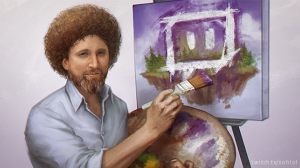Informant: Uluwehi is a 21-year-old student from Hawaiʻi. She is from the island of Oʻahu.
Main Piece: “Okay so…Māui was the youngest of four brothers. And one day, he wanted to go fishing with his brothers. But they told him ‘no, no Māui, you’re the baby brother, you can’t come fish.’ So Māui went to his grandmother and asked her for help. She took her jawbone and made it into a magic fishhook, Manaiakalani.
So Māui was really smart and he hid himself on his brothers’ boat. When they got too far out to turn around, Māui jumped out. They were annoyed with him but let him stay because it was too late. But they were telling him off and didn’t think he would catch anything. He told them he would catch something really big, but they had to trust him and keep rowing until he caught it and not look back.
Māui baited his hook with feathers and threw it into the ocean. It caught something really big, and the brothers started rowing and rowing and Māui told them to kept rowing. And the boat was almost capsizing because the fish was so big. But the fish was actually the land that would become Hawaiʻi, and Māui was going to bring them all up and together.
Because the boat was rocking so much and they were really worried, one of the brothers looked back and saw all of the islands being dragged up from the ocean. And they’re all beautiful, but because the brother looked, the line broke. Manaiakalani went into the sky and became a constellation. And the islands stayed as separate islands. But Māui had made Hawaiʻi.”
Background Information about the Performance: This piece was told to the informant as a means of explaining the constellation Manaiakalani, which is composed of roughly the same stars as the Western constellation Scorpio. She was told it as a child by her family, and also learned it in school. It is important to her as it describes the creation of Hawaii, her home.
Context of Performance: This piece is told primarily to children as a means of understanding the constellations, but also fits into the larger story of Māui.
Thoughts: It is noteworthy that this piece explains a constellation, much like the Western constellations are explained in stories. Since both the Hawaiians and the Ancient Greeks sail avidly, these constellation-based stories could have been created to help sailors remember directions when navigating.

